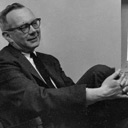
For one odd, brief, and singular moment, the catastrophes of my family and my country had come together, showing me how they were woven together, knotted and inextricable. . . .
An excerpt from The Upstairs Wife: An Intimate History of Pakistan.

Three years after Boulder citizens voted to de-privatize their electricity and create a public utility, the city’s effort remains stalled. Can the municipalization experiment still succeed—and provide a model for other U.S. cities seeking to go green?

Can the Kurdish experiment in radical democracy stem Turkey’s authoritarian turn?

Vietnam shook to its foundations the sense of America that reigned when the Army and Navy football teams faced off in their legendary 1964 game.

As “urban renewal” threatens to further marginalize the city’s poor, Marseille activists are demonstrating that genuine cultural, environmental, and social renewal can go hand in hand.

Early this year, Bosnians rose up against their dysfunctional government and the kleptocratic neoliberalism it enforces. But their invigorating experiment in direct democracy has since lost momentum. What’s left of the Bosnian Thaw?

How America’s suburbs are engineered against the walking poor

Cities offer the natural solidarities of work and neighborhood that make sustained organizing possible. Their decline spells disaster for American labor.

Why, after nearly a decade of drug war violence, police incompetence, judicial impunity, and official corruption, have Mexicans suddenly taken to the streets to demand political change? And can Peña Nieto’s proposed reforms do anything to stem this wave of unrest?

Saint, saboteur, or square? Fifty years after the Free Speech Movement, a look back at its charismatic leader.

Who are the Muslim Brothers? And what sort of relationship do they believe they have with the divine?

Spain’s “lost generation” heads for the hills.

In celebration of a new anthology of Howe’s writing, we present three of his essays not previously published in Dissent: “This Age of Conformity” (1954), “The New York Intellectuals” (1969), and “Strangers” (1977).

Last December, the membership of the American Studies Association voted to endorse a boycott of Israeli academic institutions. Has the boycott effectively challenged academic complicity with the Israeli state? Or has it only further isolated voices of dissent in Israeli society?

This summer, Mexico’s four major cartels signed a pact of alliance. Is this a sign that they’re weakening—or are we entering a new era of state–cartel cooperation?





















